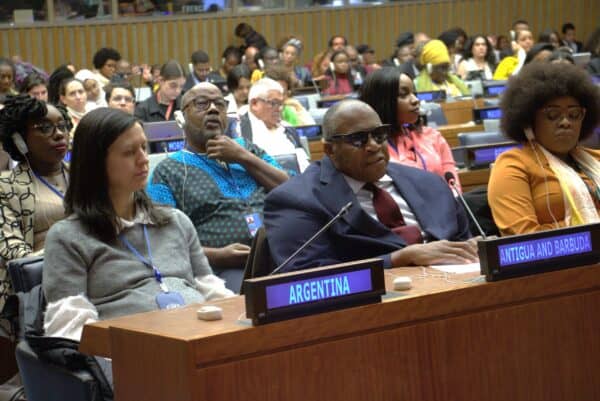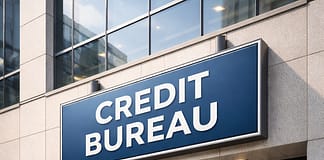
CLICK HERE TO JOIN OUR WHAT’S APP GROUP
The Antigua and Barbuda Reparations Support Commission (ABRSC) has strategically positioned itself to lead national efforts in support of the Second International Decade for People of African Descent.
This new decade provides a critical opportunity to take meaningful and sustained action in confronting the enduring legacies of slavery and colonialism, advancing reparatory justice, and securing the full realization of human rights and freedoms for people of African descent worldwide.
For Antigua and Barbuda, the Commission’s work during this period will center on recognition, with an emphasis on research and documentation of resistance efforts, including the pivotal roles of women freedom fighters.
Key focus areas include renaming and reimagining spaces of historical significance, as well as collaboration with the CARICOM Reparations Commission to advance implementation of the CARICOM Ten-Point Plan for Reparatory Justice.
This renewed thrust follows the ABRSC’s participation in the Fourth Session of the United Nations Permanent Forum on People of African Descent (PFPAD), which took place at the UN headquarters in New York last week.
The two member delegation of Commission Chair Ambassador Dorbrene O’Marde and Commissioner Angelica O’Donoughe engaged in high-level sessions and working groups, building critical alliances to support capacity-building and the Commission’s future work.
At the heart of the Forum was “The Garvey Talks: Reparations Rap Session,” which brought together reparation advocates from across the African Diaspora under the theme “Reparatory Justice for Africa and People of African Descent.”

The event featured speakers from the CARICOM Reparations Commission and the National African-American Reparations Commission, sharing insights, achievements, and strategies for collective advancement.
Another featured session, “The Role of Arts and Culture in Acknowledging the Legacy of the Transatlantic Slave Trade and Supporting Afro-Descendant Communities,” explored how national museums, cultural programming, and targeted grants can play a transformative role in advancing reparatory justice through storytelling, education, and community empowerment.
As part of its cultural engagement strategy, the ABRSC is currently preparing to host Dr. Julius Garvey, son of the legendary Pan-Africanist Marcus Garvey, for Antigua and Barbuda’s Watchnight Celebration on July 31st.
His visit is expected to deepen public understanding of reparations and the global Black liberation struggle.
A powerful highlight of the Forum was its closing session, which focused on Haiti’s Independence Debt — 200 Years Later.
The session marked two centuries since France imposed an “independence debt” on Haiti, the world’s first Black republic, underscoring Haiti’s central role in the global history of anti-colonialism, abolition, and African self-determination.
Antigua and Barbuda’s Permanent Representative to the United Nations Ambassador Walton Webson delivered a compelling address on behalf of Caricom stating:
“The world owes a moral and historical debt to Haiti.
The success of its revolution further emboldened the ancestors in the Caribbean. Haiti stood first, and for that it stood alone.
Now, centuries later, we must not leave Haiti to stand alone again.
This is a time for reparations. A time for justice. A time to restore Haiti — not just in words, but through concrete international action. France must account.
The world must acknowledge. And we — people of African descent across the Caribbean and beyond — must unite in defense of Haiti’s future.”
Moderated by H.E. Martin Kimani, Chair of the Permanent Forum, the discussion illuminated Haiti’s historical significance and the urgency of supporting its restoration as a vital component of the Second International Decade for People of African Descent.
The Antigua and Barbuda Reparations Support Commission reaffirms its unwavering commitment to public education, community engagement, and projects that advance the global movement for reparatory justice.
CLICK HERE TO JOIN OUR WHAT’S APP GROUP
CLICK HERE TO JOIN OUR WHAT’S APP GROUP
CLICK HERE TO JOIN OUR WHAT’S APP GROUP
CLICK HERE TO JOIN OUR WHAT’S APP GROUP
CLICK HERE TO JOIN OUR WHAT’S APP GROUP
CLICK HERE TO JOIN OUR WHAT’S APP GROUP
Advertise with the mоѕt vіѕіtеd nеwѕ ѕіtе іn Antigua!
We offer fully customizable and flexible digital marketing packages.
Contact us at [email protected]
















I want reparations from my own black African brothers and sisters first before before any reparations from any other nation. It’s despicable how our own people enslaved us and to make things worse, SOLD, yes SOLD us off to foreigners. To do something like that shows me they have no loyalty to their own. They have no conscience at all.
Reparations should and must come from our own people first.
Let’s not forget – reparations isn’t just about money, it’s about justice, education, and healing too.
They should focus on fixing current inequalities first before jumping into more committees and events.
What exactly came out of the first decade?
Don’t politicize it. Reparations is bigger than party lines.
It’s good to see Antigua playing a leading role in something this important.
It’s not Haiti it’s Aiyiti (the real name), Power to Antigua one love 1 heart to my people
BARBDA DESERVES REPARATIONS FROM ANTIGUA JUST LIKE WHEN THE PM APOLOGIZED TO RASTA AND MAKING TH3M WHOLE BARBUDA PEOPLE DESERVES SIMILAR TREATMENT.
Comments are closed.